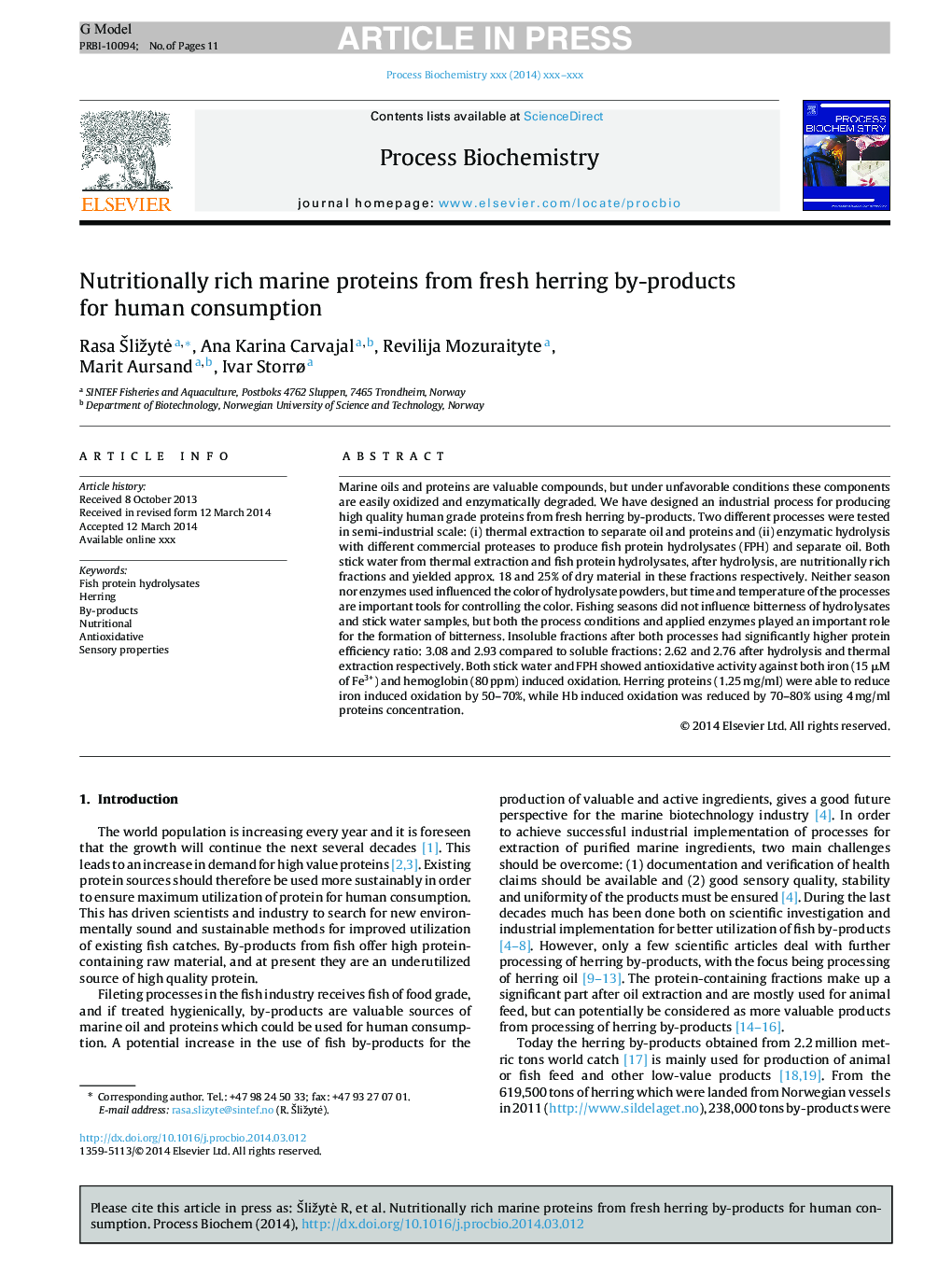| Article ID | Journal | Published Year | Pages | File Type |
|---|---|---|---|---|
| 10235177 | Process Biochemistry | 2014 | 11 Pages |
Abstract
Marine oils and proteins are valuable compounds, but under unfavorable conditions these components are easily oxidized and enzymatically degraded. We have designed an industrial process for producing high quality human grade proteins from fresh herring by-products. Two different processes were tested in semi-industrial scale: (i) thermal extraction to separate oil and proteins and (ii) enzymatic hydrolysis with different commercial proteases to produce fish protein hydrolysates (FPH) and separate oil. Both stick water from thermal extraction and fish protein hydrolysates, after hydrolysis, are nutritionally rich fractions and yielded approx. 18 and 25% of dry material in these fractions respectively. Neither season nor enzymes used influenced the color of hydrolysate powders, but time and temperature of the processes are important tools for controlling the color. Fishing seasons did not influence bitterness of hydrolysates and stick water samples, but both the process conditions and applied enzymes played an important role for the formation of bitterness. Insoluble fractions after both processes had significantly higher protein efficiency ratio: 3.08 and 2.93 compared to soluble fractions: 2.62 and 2.76 after hydrolysis and thermal extraction respectively. Both stick water and FPH showed antioxidative activity against both iron (15 μM of Fe3+) and hemoglobin (80 ppm) induced oxidation. Herring proteins (1.25 mg/ml) were able to reduce iron induced oxidation by 50-70%, while Hb induced oxidation was reduced by 70-80% using 4 mg/ml proteins concentration.
Related Topics
Physical Sciences and Engineering
Chemical Engineering
Bioengineering
Authors
Rasa Å ližytÄ, Ana Karina Carvajal, Revilija Mozuraityte, Marit Aursand, Ivar Storrø,
